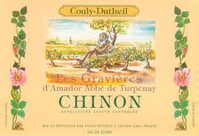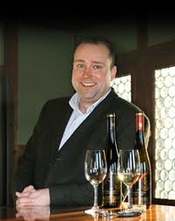“Context” apparently became my wine watchword in 2010. As I look back over the year trying to remember its best bottles, I keep recollecting its memorable moments instead–times rather than tastes, my experience of wines enjoyed in certain places and with certain people rather than any set of particular aromas and flavors. Like everyone, I suppose, I had my share of uninteresting wines at fairly important moments–the flat sparkler at a wedding or the wooden Chardonnay at a banquet–but I also was lucky enough to enjoy some outstanding wines during some truly wonderful times. Two of them stand out as my wine and winery of the year.
Wine of the Year
My wife and I spent last Thanksgiving in Paris, nestled in a small but very comfortable apartment for a week, visiting with friends some days, exploring the city by ourselves the rest of the time. We were on a fairly tight budget, so ate in most days, buying fairly inexpensive wines from a shop down the street. On our last evening, over a dinner with two Seattle-based friends who also were spending late November in the City of Lights, we prepared a picnic for dinner, with cheeses and pâtés and salads bought that morning at the bustling but frigid open-air Bastille market. With it, I opened a few bottles, one of which at that moment tasted simply ethereal. It was Couly-Dutheil Chinon “Les Graviéres” 2009, and it cost all of €12. (Back home, I hunted for it and found it at my favorite local wine shop. Imported by Elite Wines, it was selling for $18; I bought all they had.) Light-bodied but full-flavored, with a finish that seemed to linger literally for minutes, it seemed the perfect wine in the perfect place. To add to its charm, after our friends had gone home and the dishes had been washed, I finished the last drops in the glass, looking out the window at the wintry-looking rooftops. As if by magic, it just then started to snow.
market. With it, I opened a few bottles, one of which at that moment tasted simply ethereal. It was Couly-Dutheil Chinon “Les Graviéres” 2009, and it cost all of €12. (Back home, I hunted for it and found it at my favorite local wine shop. Imported by Elite Wines, it was selling for $18; I bought all they had.) Light-bodied but full-flavored, with a finish that seemed to linger literally for minutes, it seemed the perfect wine in the perfect place. To add to its charm, after our friends had gone home and the dishes had been washed, I finished the last drops in the glass, looking out the window at the wintry-looking rooftops. As if by magic, it just then started to snow.
Winery of the Year
On a hot, sultry afternoon this past July, Marguerite and I met with Nik Weis, the genially serious, oh-so-focused vintner in charge of the wines at St. Urbans-Hof in Germany’s Mosel river valley. We had been  supposed to meet at a dinner in a restaurant that evening, but circumstances had conspired against that outcome, and he kindly made time to stop by the house to let us taste his wines. It was very hot and humid–typical Baltimore conditions–but surely unusual weather for someone who lives in northern Germany. The wines, and the winemaker, changed all that. As strange as it may sound, tasting–no, better, experiencing–their crystalline purity, and listening to the man who took such evident pride in them, made everything seem cooler and more comfortable. These were wines that could excite and relax you all at once. They seemed to soar, their compelling fruit and mineral-laced flavors being light and lacy yet at the same time intense and profound. That paradoxical character distinguishes the very best Mosel Rieslings, and it was evident in every one of these wines. Whether dry, off-dry, or overtly sweet, they were stunning.
supposed to meet at a dinner in a restaurant that evening, but circumstances had conspired against that outcome, and he kindly made time to stop by the house to let us taste his wines. It was very hot and humid–typical Baltimore conditions–but surely unusual weather for someone who lives in northern Germany. The wines, and the winemaker, changed all that. As strange as it may sound, tasting–no, better, experiencing–their crystalline purity, and listening to the man who took such evident pride in them, made everything seem cooler and more comfortable. These were wines that could excite and relax you all at once. They seemed to soar, their compelling fruit and mineral-laced flavors being light and lacy yet at the same time intense and profound. That paradoxical character distinguishes the very best Mosel Rieslings, and it was evident in every one of these wines. Whether dry, off-dry, or overtly sweet, they were stunning.
4
